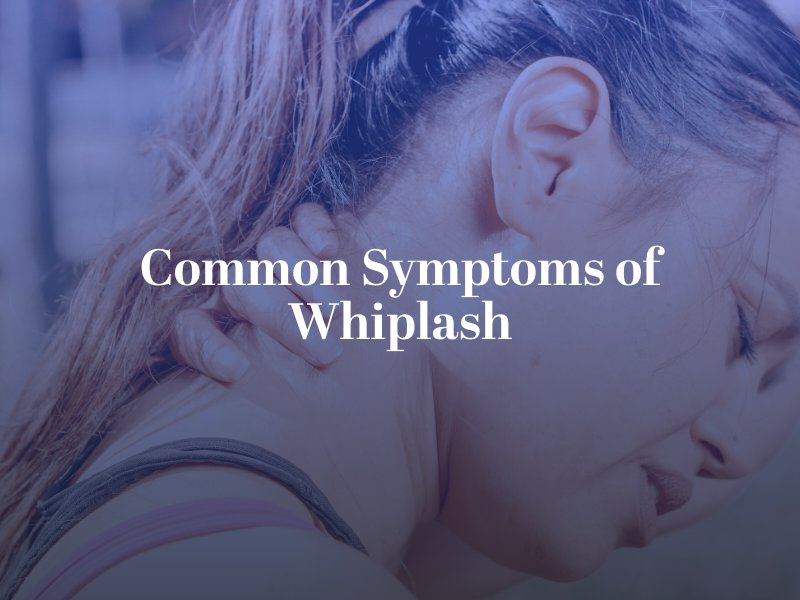April 5, 2024 Car Accidents
Whiplash is a common yet misunderstood injury. Characterized by the rapid, whip-like motion of the neck due to sudden acceleration or deceleration, whiplash can cause painful symptoms that do not always manifest right away or appear on medical tests. Here is what you need to know about whiplash, its treatment options, and your legal pathways after an accident caused by someone else.

Whiplash injuries can manifest a variety of symptoms, which might not be apparent right away. Adrenaline and the body’s initial shock response can mask these symptoms in the initial stages, but in the days and weeks following the crash, painful conditions can develop.
Some of the most common symptoms of whiplash include:
In a car accident, whiplash injuries occur when the force of a collision causes the head to suddenly jerk forward and then backward. This motion can strain the neck muscles and ligaments beyond their usual range of motion.
As hormones like adrenaline and cortisol dissipate, the pain may intensify, revealing the true extent of physical damage. Swelling and inflammation over the following hours can exacerbate the pain and restrict your movement, making early medical intervention essential.
Even if you do not experience any symptoms after the accident, it is important to seek prompt treatment in order to document your condition. Additionally, you should continue to follow up with your doctor as more whiplash symptoms arise.
The treatment for whiplash varies based on the severity and specific nature of the injuries sustained, which are collectively known as whiplash-associated disorders. Since whiplash primarily involves soft tissue, X-rays may not always detect these injuries, but your doctor might use them to rule out fractures.
Depending on the extent of your injury, your doctor may recommend the following treatments:
As you continue with your treatment plan, it is essential to follow your doctor’s recommendations. Neglecting to adhere to the prescribed therapy could lead to long-term complications such as chronic pain and reduced mobility. Additionally, failure to keep up with treatment could cast doubt on the validity of your injuries, which can greatly affect a future insurance claim or lawsuit.
If you have sustained whiplash after a car accident in Nevada, you may be eligible for compensation. Nevada is a fault-based accident state, meaning that drivers are financially responsible for any accidents that they cause. However, whiplash is often overlooked or under-appreciated by insurance providers, which could affect recovery.
Insurance companies may downplay the severity of whiplash to minimize payouts. Because symptoms are delayed or may not appear on diagnostic tests, this injury can be easy to overlook. For this reason, it is important to work with a Las Vegas car accident lawyer who can defend your rights.
A Las Vegas injury lawyer can advocate aggressively on your behalf so that your medical, physical, and financial needs are adequately addressed. Schedule a free legal consultation to learn more about your options and begin building your case.